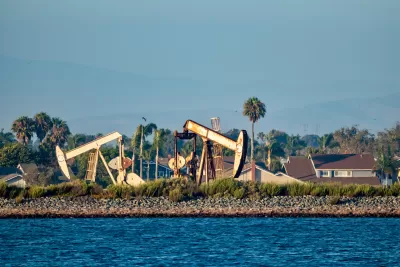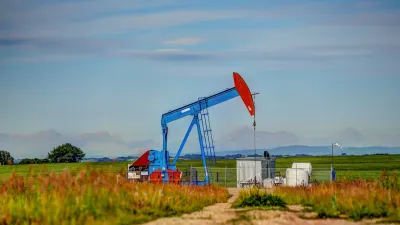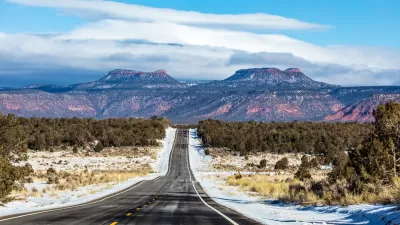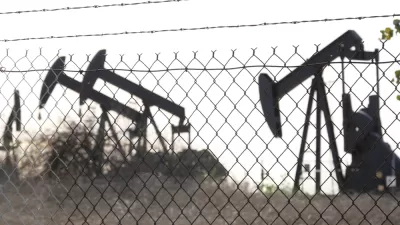The new rules would raise more money for cleanup operations and bring more revenue to oil-producing states, but are a far cry from fulfilling President Biden’s promise to end extraction on public lands.

Changes to regulations governing oil drilling on public lands proposed by the Biden administration could “dramatically increase the operators’ financial obligations, boost the royalties that companies pay and tighten permissive leasing regulations,” writes Nick Bowlin in High Country News.
“Many Western environmental advocates and public officials praised the proposal as the much-needed and long-overdue restructuring of a system that has always favored industry.” Bowlin notes that the financial assurance reforms included in the proposal are “a major deal,” with the new rules raising the bonding level for new leases and the state-level blanket bond to combat stagnant bonding levels that no longer cover the cost of site cleanup. “A 2019 report by the U.S. Government Accountability Office found that 99% of federal oil and gas leases have bonds that would be unable to pay for the full cost of cleanup.”
The proposal also raises the percentage oil companies must give to states and raises the minimum bid for public-land drilling lease auctions.
“Some climate advocates, however, said that an administration that calls itself a climate champion should be working to actively phase out public land oil and gas production, rather than attempting to reform it.” Bowlin points out that President Biden ran on a promise of ending oil drilling on public lands, “But during his first two years in office, his administration approved more oil and gas permits than former President Donald Trump did in the same time frame.”
FULL STORY: New public-land drilling rules would overhaul the Western oil industry

Montreal Mall to Become 6,000 Housing Units
Place Versailles will be transformed into a mixed-use complex over the next 25 years.

Planetizen Federal Action Tracker
A weekly monitor of how Trump’s orders and actions are impacting planners and planning in America.

Four Reasons Urban Planners Can’t Ignore AI
It’s no longer a question of whether AI will shape planning, but how. That how is up to us.

Bend, Deschutes County Move to Restrict Major Homeless Encampment
City and county officials are closing off portions of an area known as Juniper Ridge where many unhoused residents find shelter, hoping to direct people to housing and supportive services.

High Housing Costs Driving Down Transit Ridership in LA
When neighborhoods gentrify and displace lower-income residents, transit ridership suffers, new research shows.

Iowa Legalizes Accessory Dwelling Units
A new law will allow property owners to build ADUs on single-family lots starting on July 1.
Urban Design for Planners 1: Software Tools
This six-course series explores essential urban design concepts using open source software and equips planners with the tools they need to participate fully in the urban design process.
Planning for Universal Design
Learn the tools for implementing Universal Design in planning regulations.
City of Mt Shasta
City of Camden Redevelopment Agency
City of Astoria
Transportation Research & Education Center (TREC) at Portland State University
City of Camden Redevelopment Agency
Municipality of Princeton (NJ)
Regional Transportation Commission of Southern Nevada





























